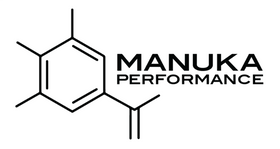This project aims to collaborate with various local stakeholders for the development of protocols, research questions, data gathering and community engagement on Mānuka as a rongoa for Māori, with a specific focus on cholesterol management. This is a new and culturally appropriate approach in research and biomedical science that develops and up-skills Kaupapa Māori practice in health research that reflect Treaty of Waitangi priorities and will directly contribute towards the prevention and treatment of chronic disorders affecting New Zealanders, specifically Māori.
Māori communities are disproportionately affected by cardiovascular diseases, including high cholesterol levels, which can lead to heart disease and stroke. The prevalence of these conditions is significantly higher among Māori compared to other population groups, indicating a need for targeted interventions. This project also aims to investigate the potential of Mānuka (Leptospermum scoparium) as a rongoa (traditional Māori medicine) for managing cholesterol levels within the Māori community. By combining traditional knowledge with modern scientific research, the project seeks to bridge the gap between traditional practices and evidence-based healthcare, with a focus on improving cholesterol-related health outcomes. Mānuka honey is known for its UMF and MGO properties, but Mānuka honey also contains amino acids, phenol antioxidants, flavonoids, carotenoid-derived compounds, kynurenic acid (a tryptophan metabolite), and nitric oxide metabolites. These bioactive compounds have been shown to have anti-inflammatory and anti-oxidant effects on various cellular cascades involved in inflammatory processes, and can ameliorate the risk factors of metabolic and cardiovascular diseases.
We aim to conduct research in partnership with Iwi, Māori organisations, knowledge holders, healers and local organisations to ensure the future health intervention study is aligned with validating traditional wisdom and promoting cultural identity. This project will develop health and bio-medical research skills and capability building at a local level, contribute towards ongoing novel and innovative Science, R&D alongside community engagement, knowledge sharing and delivering translational, better health outcomes.
The community need for a research health project on Mānuka as a rongoa for Māori, with a specific focus on cholesterol management, stems from several pressing factors that pose a barrier to promoting and enhancing community health and wellbeing.
Māori communities have a rich history of traditional knowledge related to medicinal plants and healing practices. Exploring the potential of Mānuka as a rongoa for cholesterol management empowers community members by acknowledging and validating their traditional wisdom and promoting cultural identity.
Rongoa practices often encompass a holistic approach to health, addressing not only physical ailments but also mental, emotional, and spiritual well-being. Integrating Mānuka as rongoa for cholesterol management could contribute to a more comprehensive and culturally sensitive healthcare approach. Traditional Māori healing practices, such as rongoa, hold deep cultural significance, and integrating Mānuka as a rongoa for cholesterol management aligns with Māori values and practices, making it more likely to resonate with community members. Incorporating traditional practices into modern healthcare can enhance community engagement and compliance with health interventions.
Vulnerable Māori populations, particularly those in remote or underserved areas, may face challenges in accessing conventional healthcare services. Traditional rongoa practices offer an alternative and culturally familiar approach to health management, potentially increasing access to cholesterol-lowering interventions. Unlike cholesterol medications, no adverse reactions or side-effects have been associated with the use of Mānuka honey. This health research project focusing on Mānuka as a rongoa for managing cholesterol addresses a crucial community need within the Māori population. By combining Matauranga Māori (traditional knowledge) with modern Western scientific research (research methodologies and validation), the project has the potential to improve health outcomes, empower individuals, and translate into better health outcomes for Māori, Pasifika and all New Zealanders.
Project lead: Dr Lillian Morton - Chief Science Officer Manuka Performance

